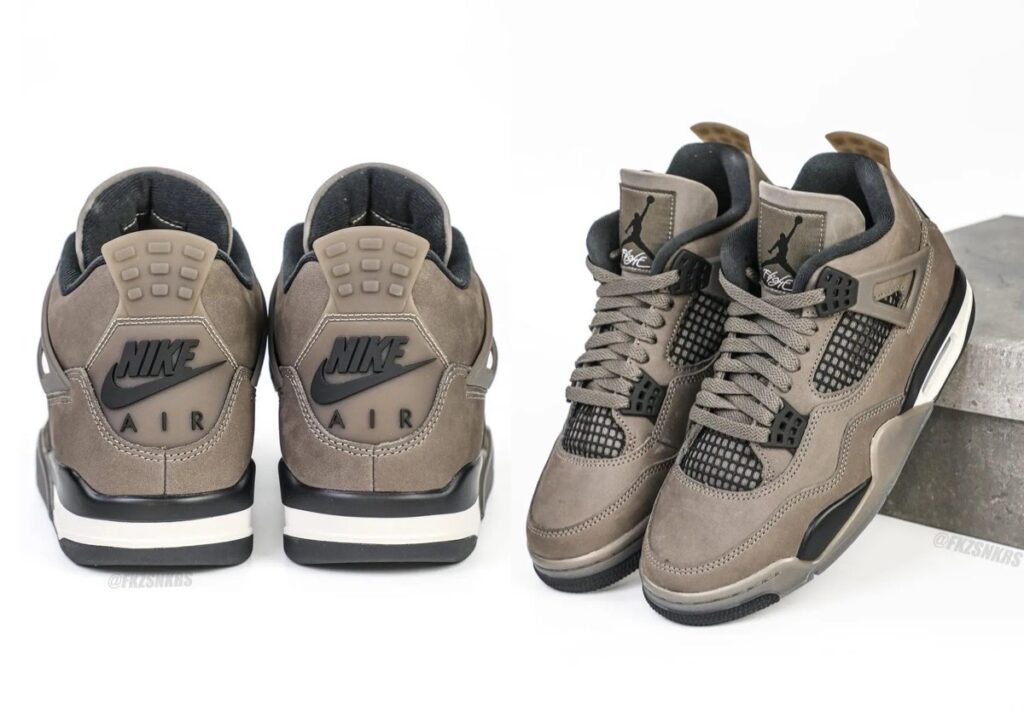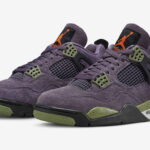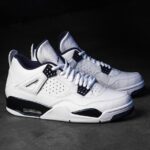“`html
Air Jordan 4 Cave Stone: Price Guide & Snagging the Best Deals
The Air Jordan 4 ‘Cave Stone’ has quickly become a sought-after sneaker, known for its unique color palette and classic silhouette that sneakerheads adore. Collectors and casual wearers alike are eager to add this pair to their rotation, but navigating the market to find the best price can be tricky. That’s why understanding where to look and how to compare prices is crucial for copping these kicks without overpaying.
Retailer Comparison: The Initial Hunt
The Air Jordan 4 ‘Cave Stone’ typically retailed for around $210-$225 USD upon its initial release. Major sneaker retailers like Nike’s SNKRS app, Foot Locker, Finish Line, JD Sports, and select boutique sneaker stores were the primary spots to snag a pair at retail. However, due to high demand, securing them at retail price is often a challenge, with many pairs selling out instantly. If you’re looking now, most retail stock is likely depleted, pushing most buyers towards the resale market.
Resale Market Analysis: Where the Game is Played Now
Once the initial retail stock depletes, the resale market becomes the main source for the Air Jordan 4 ‘Cave Stone’. Platforms like StockX, GOAT, and eBay are popular choices.
- StockX: Prices can fluctuate daily based on supply and demand. Expect prices to be above retail, potentially ranging from $280 to $450+ depending on size and market conditions. Last Sale examples often hover around the $300-$350 mark for common sizes.
- GOAT: Similar to StockX, GOAT offers new and used pairs. Prices for new ‘Cave Stone’ 4s are comparable, often within a similar range of $280 to $450+. Used pairs can offer savings but inspect conditions carefully.
- eBay: A wider range of prices can be found here, from individual sellers. You might find slightly better deals, but authentication can be more of a concern unless using eBay’s Authenticity Guarantee service. Prices can vary widely from $270 to $500+.
Factors affecting resale prices include:
- Size: More common sizes might have more availability and slightly more competitive pricing, while very small or very large sizes can sometimes command higher prices due to scarcity.
- Condition: Brand new, deadstock (DS) pairs will always fetch the highest price. Used pairs will vary based on wear and tear.
- Hype and Rarity: The overall desirability of the ‘Cave Stone’ colorway keeps its resale value strong.
- Seller Reputation: Established sellers with good reviews may price slightly higher.
Tips for Finding Deals on Air Jordan 4 Cave Stone
- Be Patient: Prices can fluctuate. Sometimes waiting a bit after the initial post-release hype dies down can lead to slightly better deals, though this isn’t always the case for highly coveted pairs.
- Follow Reputable Sellers & Communities: Join sneaker groups on social media (like Reddit’s r/SnealsDeals or Facebook groups) or follow trusted resellers who might offer pairs at reasonable prices or announce deals.
- Use Price Comparison Tools: Some sneaker apps or browser extensions can help track prices across different platforms.
- Consider Lightly Used Options: If you’re not set on a brand-new, deadstock pair, verified pre-owned sneakers from platforms like GOAT or eBay can offer significant savings. Ensure the platform offers authentication for used pairs.
- Beware of Too-Good-To-Be-True Deals: If a price seems drastically lower than the general market value, especially from an unknown seller, it could be a scam or a counterfeit product.
- Local Consignment Shops: Don’t forget to check local sneaker consignment stores. You might find a fair deal and can inspect the shoe in person.
Authenticity Guide: Spotting Fake Air Jordan 4s
With high resale values come fakes. Here’s how to be more vigilant:
- Examine Stitching and Overall Quality: Authentic Jordans have neat, consistent, and high-quality stitching. Loose threads, sloppy glue marks, or poor craftsmanship are red flags.
- Check the Box and Labels: The box quality, label fonts, style codes (SKU), and information should match official Nike standards. Compare the SKU on the box with the SKU on the shoe’s internal tag. Mismatched numbers or typos are warning signs.
- Smell Test: Fakes often have a strong chemical or glue smell due to cheaper materials and manufacturing processes. Authentic Nikes have a more distinct, less offensive scent.
- Logo Details:
- Jumpman Logo: On the tongue, heel, and insole, the Jumpman logo should be well-defined, proportioned correctly, and have clear details (e.g., distinct fingers, shoelaces). Fakes often have sloppy or misshapen Jumpman logos.
- “Flight” Script: The “Flight” script below the Jumpman on the tongue should be clear and well-embroidered.
- Tongue Tag and Shape: The tongue on an Air Jordan 4 is quite padded and should stand up well. The details on the back of the tongue tag (like the “AIR JORDAN” upside down) should be cleanly printed or stitched.
- Netting: The plastic netting on the sides and lower tongue should be properly aligned and have a quality feel. On fakes, it can be too stiff, too flimsy, or incorrectly angled.
- Sole and Materials: The texture of the outsole, the quality of the leather/nubuck/suede, and the feel of the mesh should align with genuine Air Jordan 4s. The air unit should be clear and well-constructed.
- Buy from Reputable Sources: The best way to avoid fakes is to buy from authorized retailers or trusted resale platforms that offer robust authentication services (like StockX, GOAT, and eBay’s Authenticity Guarantee).
Conclusion: Your Cave Stone Quest
Want the Air Jordan 4 Cave Stone? It’s a cool shoe! Look at different stores and online places to find a good price. Sites like StockX or GOAT sell them, but they might cost more than the first price in stores. Try to find deals, but be super careful about fake shoes. Always check if they look real and if the seller is good. If you shop smart, you can get these awesome sneakers without spending too much money and be sure they are the real deal!
“`



